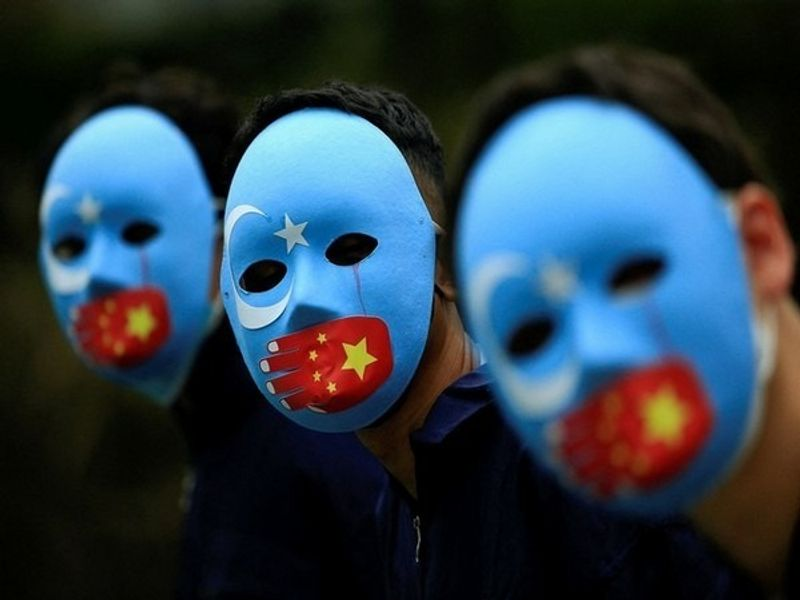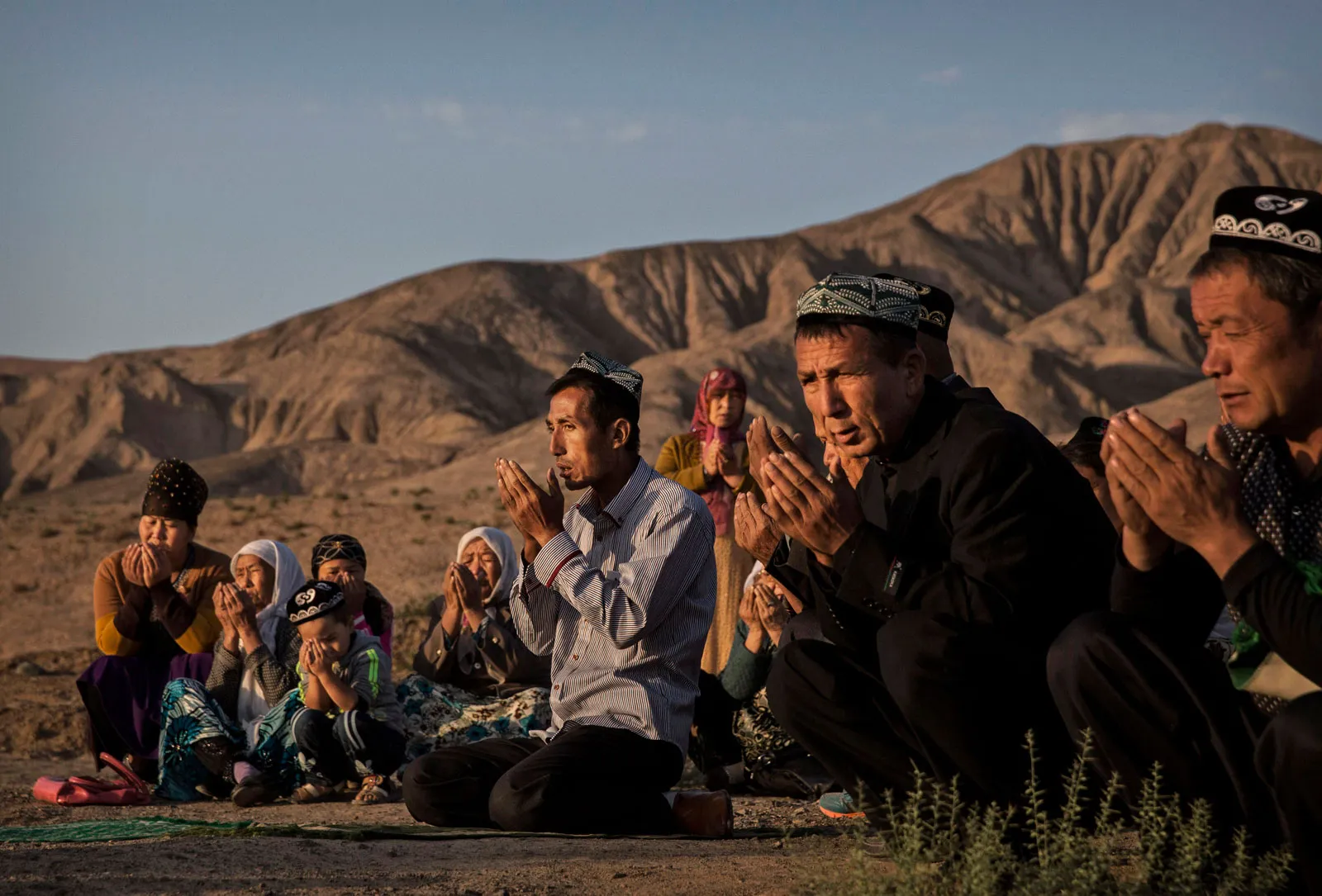The Chinese government’s crackdown on Uyghur intellectuals and cultural figures has once again come into focus with the case of Ghojaniyaz Yollugh Tekin, a prominent Uyghur historian and researcher specializing in Uyghur toponymy.
Tekin, a respected educator at the Aksu Education Institute in Xinjiang, was sentenced to 17 years in prison for his scholarly work and views asserting that Uyghurs are part of the Turkic world rather than Chinese. His imprisonment is part of a broader pattern of repression targeting Uyghur intellectuals, cultural figures, and professionals in the far-western Xinjiang region.
A Historian Targeted for His Research
Tekin’s work focused on the historical and linguistic evolution of Uyghur place names, shedding light on the region’s deep-rooted Turkic identity. His research was significant in preserving the cultural and historical heritage of the Uyghurs, a Turkic ethnic group native to Xinjiang.
However, his academic work and participation in intellectual discussions made him a target of Chinese authorities, who have sought to suppress Uyghur identity and historical narratives that challenge Beijing’s claim over the region.
In 2017, as part of the Chinese government’s mass detentions of Uyghurs and other Turkic peoples, Tekin was arrested and later sentenced to 17 years in prison in 2018.
His crime, according to authorities, was his research and writings that asserted Uyghurs belong to the Turkic world rather than being historically Chinese. Tekin was among an estimated 1.8 million Uyghurs who were forcibly sent to re-education camps, where detainees have reported facing indoctrination, forced labor, and various forms of abuse.
Read : Outrage in China as Highway Patrol Officers Eat Dog That Escaped from Pet Boarding Center
According to sources familiar with his case, Tekin is currently serving his sentence in a prison in Hotan, a city located 500 kilometers south of Aksu. His arrest and imprisonment have drawn attention from activists and scholars who see his case as yet another attempt by the Chinese government to erase Uyghur history and identity through repression.
Persecution for Writing on Sensitive Historical Topics
Tekin’s persecution is not an isolated case but rather part of a long history of China’s suppression of Uyghur historians and intellectuals. For decades, Uyghur scholars who have written about their people’s history, culture, and identity have faced harassment, censorship, and imprisonment.
Tekin was an active participant in Uyghur intellectual circles, frequently attending discussions and engaging in debates about Uyghur history and identity. His research gained recognition among Uyghurs, making him a respected figure in the community. However, this prominence also made him a target for Chinese authorities, who closely monitor and suppress any discourse that deviates from the official narrative.
Read : Amsterdam to Remove Chinese-Made Cameras Over Espionage and Human Rights Concerns
Chinese state security agents reportedly harassed Tekin for years due to his work on sensitive topics. His writings and discussions about Uyghurs’ historical and cultural ties to the broader Turkic world were seen as a threat to Beijing’s control over Xinjiang.

Some of his colleagues referred to him as “Aksu’s Turghun Almas,” drawing a parallel between him and Turghun Almas, a well-known Uyghur historian whose book, The Uyghurs, challenged China’s claims over the region.
Almas’s book, published in the late 1980s, was quickly banned by Chinese authorities, and he was prohibited from further writing or publishing. Similarly, Tekin faced repeated interrogations and detentions throughout the 1990s for his historical research. His persistence in continuing his work despite government suppression ultimately led to his imprisonment.
The Link to Turanism and Uyghur Identity Suppression
Tekin’s troubles with the Chinese government can be traced back to an article he published in the late 1980s titled East Turkistan, West Turkistan, and the Concept of Turan.
The article, which appeared in a local newspaper in Aksu, discussed the historical and cultural concept of Turan—a term referring to a historical region in Central Asia and a movement advocating for the unity of Turkic and Ural-Altaic-speaking peoples.
The idea of Turanism has been viewed with suspicion by Chinese authorities, as it promotes the notion of a shared Turkic identity that transcends national borders.
The article caused a stir among Uyghurs in Xinjiang and caught the attention of Chinese officials, leading to Tekin’s suspension from his teaching position. From that point onward, he faced continuous government scrutiny and was repeatedly detained for questioning.
Despite these challenges, Tekin remained committed to his work and continued speaking out about Uyghur history. However, in 2018, he was labeled a “stubborn separatist” for refusing to abandon his research.
This accusation ultimately led to his imprisonment in a re-education camp, where countless Uyghurs have been subjected to forced indoctrination and harsh treatment.

China has defended its re-education camps by claiming they were vocational training centers designed to counter extremism. However, testimonies from former detainees and reports from human rights organizations have painted a starkly different picture, revealing that these facilities were sites of political indoctrination, forced labor, physical abuse, and even forced sterilizations.
Tekin’s case exemplifies the Chinese government’s broader campaign to silence Uyghur intellectuals, erase their cultural identity, and suppress any historical narratives that challenge Beijing’s control over Xinjiang.
His imprisonment is not just an attack on an individual scholar but a reflection of the systematic repression faced by Uyghur academics, historians, and writers.
The sentencing of Ghojaniyaz Yollugh Tekin to 17 years in prison for his academic work on Uyghur history and identity is a disturbing example of China’s crackdown on Uyghur intellectuals. His case highlights the broader suppression of Uyghur scholars who challenge the state’s narrative and advocate for the preservation of their cultural heritage.
Tekin’s story mirrors that of other Uyghur historians, such as Turghun Almas, who have faced persecution for documenting the historical and cultural identity of their people. The ongoing repression of Uyghur intellectuals is part of a larger strategy to assimilate the Uyghur population, erase their distinct identity, and assert absolute state control over Xinjiang.
Despite the Chinese government’s attempts to silence voices like Tekin’s, the international community continues to raise concerns about the treatment of Uyghurs in Xinjiang. Human rights organizations, scholars, and activists have called for greater accountability and urged China to release imprisoned Uyghur intellectuals.
Tekin’s imprisonment serves as a grim reminder of the sacrifices made by those who seek to preserve the history and identity of their people. His case underscores the urgent need for global attention and action to protect Uyghur scholars and ensure that their voices are not silenced by authoritarian repression.

